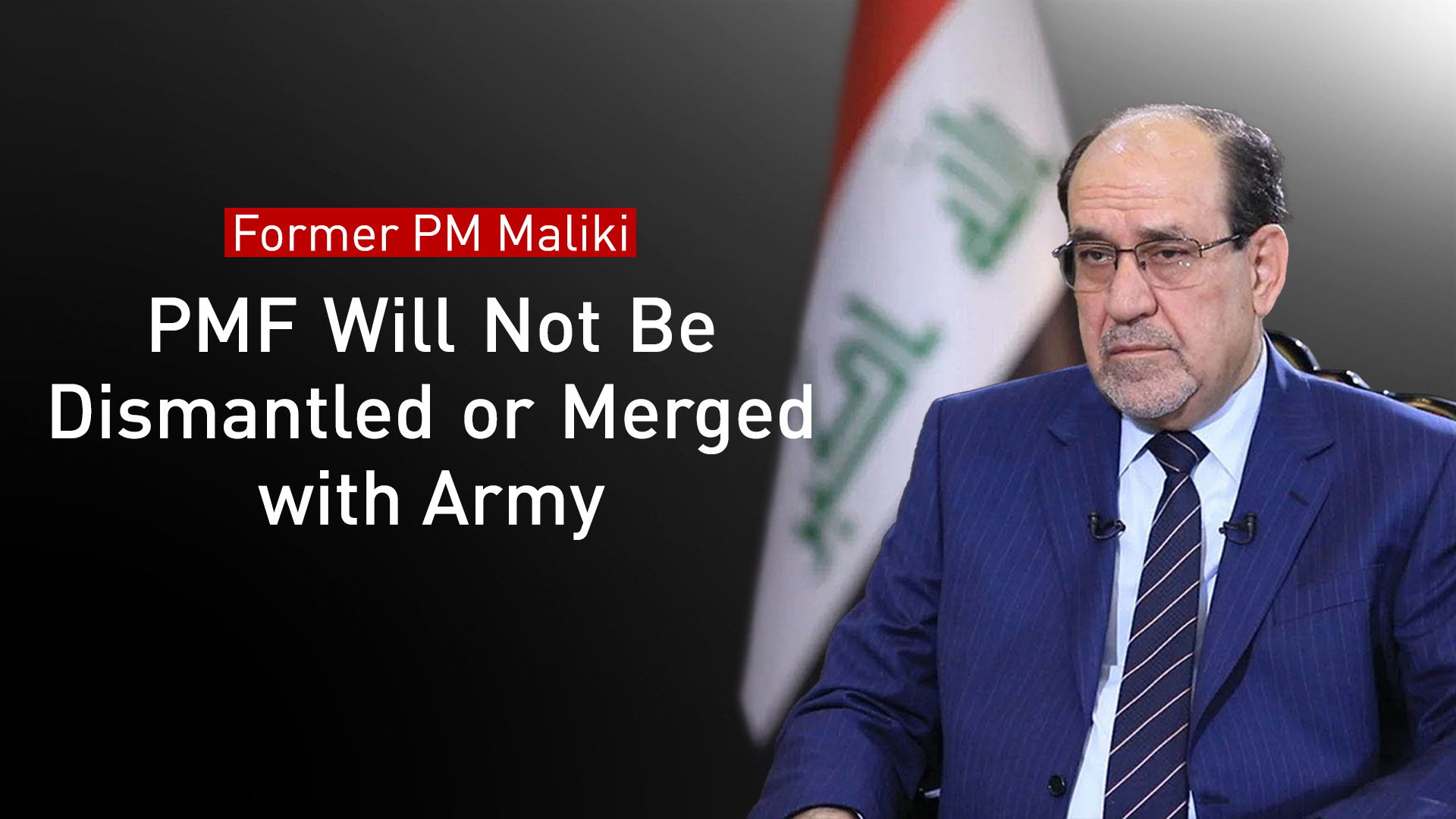Former PM Maliki: PMF Will Not Be Dismantled or Merged with Army
“I asked the Americans, why do you object to a force made of around 260,000 members having a law to organize it?” Maliki said. “They responded by saying there are efforts to dismantle the PMF. I told them, the PMF will never be dismantled.”

ERBIL (Kurdistan24) — Former Iraqi Prime Minister Nouri al-Maliki has strongly defended the Popular Mobilization Forces (PMF) and criticized U.S. opposition to formal legislation for the armed militia group, during a televised interview aired on Iraqi INews TV on Saturday.
Maliki, leader of the Islamic Dawa Party and a senior figure in the Shia Coordination Framework, revealed details of conversations with American officials who questioned the rationale behind passing a law for the PMF, a force composed of approximately 260,000 members.
“I asked the Americans, why do you object to a force made of around 260,000 members having a law to organize it?” Maliki said. “They responded by saying there are efforts to dismantle the PMF. I told them, the PMF will never be dismantled.”
The former premier rejected U.S. proposals to merge the PMF into the regular Iraqi army, arguing that such a move would dissolve its identity. “If the PMF got merged, it would be over and disappear,” he stated.
Maliki further claimed that Iraq’s parliament remains paralyzed primarily due to its inability to pass the PMF legislation and amend the electoral law. “I don’t see the parliament functioning again before the upcoming elections,” he added.
On the issue of U.S. military presence in Iraq, Maliki acknowledged growing regional tensions and hinted that Baghdad might allow American forces to remain under certain conditions. “Given the new security threats… I believe the American forces will be given a chance to remain and continue providing support to the Iraqi army,” he said, noting that the decision requires careful internal deliberation.
Addressing the upcoming national elections scheduled for November, Maliki called for the return of influential cleric Muqtada al-Sadr to the political process. “His participation brings stability,” he said, while noting that he does not have direct communication with the Sadrists’ leader.
Maliki emphasized that Sudani’s chances for a second term hinge on post-election political alliances rather than the ballot results alone. Maliki also raised concerns over the misuse of state resources during election campaigns, warning that “state money should not be used for the election campaign.”
In a notable disclosure, Maliki said that key Iraqi officials — including the president, foreign minister, and leaders of the Shia Coordination Framework — were unaware of Prime Minister Mohammed Shia’ al-Sudani’s recent meeting with Syria's President Al-Sharaa in Doha, Qatar. He cautioned that while Iraq, as host of the upcoming Arab summit, cannot block participation by any member country, Al-Sharaa’s attendance could prove problematic due to existing arrest warrants against him in Iraq.
The Popular Mobilization Forces were formed in 2014 as a coalition of mostly Shia militias to combat the rise of ISIS, later becoming an official part of Iraq’s security apparatus. While hailed by many in Iraq as a critical force in the fight against terrorism, the PMF has faced ongoing scrutiny from both domestic opponents and international actors—particularly the United States—over concerns about its independence, sectarian ties, and alignment with Iran. Debates over its legal status continue to reflect broader tensions within Iraq’s political and security landscape.
